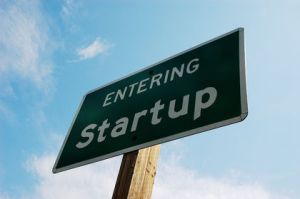 Starting up a new business was once a demanding and complex process, often undertaken in anonymity in the long shadows between the hours of a regular job. It still is over course. However nowadays “the startup” has become more of an event. The tech sector has raised this to a fine art by spawning an entire self-sustaining and self-promoting industry around startups.
Starting up a new business was once a demanding and complex process, often undertaken in anonymity in the long shadows between the hours of a regular job. It still is over course. However nowadays “the startup” has become more of an event. The tech sector has raised this to a fine art by spawning an entire self-sustaining and self-promoting industry around startups.
You’ll find startup gurus, serial entrepreneurs and digital prophets — yes, AOL has a digital prophet on its payroll — strutting around on stage, twittering tips in the digital world, leading business plan bootcamps, pontificating on accelerator panels, hosting incubator love-ins in coffee shops or splashed across the covers of Entrepreneur or Inc or FastCompany magazines on an almost daily basis. Beware! The back of your cereal box may be next.
[div class=attrib]From the Telegraph:[end-div]
I’ve seen the best minds of my generation destroyed by marketing, shilling for ad clicks, dragging themselves through the strip-lit corridors of convention centres looking for a venture capitalist. Just as X Factor has convinced hordes of tone deaf kids they can be pop stars, the startup industry has persuaded thousands that they can be the next rockstar entrepreneur. What’s worse is that while X Factor clogs up the television schedules for a couple of months, tech conferences have proliferated to such an extent that not a week goes by without another excuse to slope off. Some founders spend more time on panels pontificating about their business plans than actually executing them.
Earlier this year, I witnessed David Shing, AOL’s Digital Prophet – that really is his job title – delivering the opening remarks at a tech conference. The show summed up the worst elements of the self-obsessed, hyperactive world of modern tech. A 42-year-old man with a shock of Russell Brand hair, expensive spectacles and paint-splattered trousers, Shingy paced the stage spouting buzzwords: “Attention is the new currency, man…the new new is providing utility, brothers and sisters…speaking on the phone is completely cliche.” The audience lapped it all up. At these rallies in praise of the startup, enthusiasm and energy matter much more than making sense.
Startup culture is driven by slinging around superlatives – every job is an “incredible opportunity”, every product is going to “change lives” and “disrupt” an established industry. No one wants to admit that most startups stay stuck right there at the start, pub singers pining for their chance in the spotlight. While the startups and hangers-on milling around in the halls bring in stacks of cash for the event organisers, it’s the already successful entrepreneurs on stage and the investors who actually benefit from these conferences. They meet up at exclusive dinners and in the speakers’ lounge where the real deals are made. It’s Studio 54 for geeks.
[div class=attrib]Read the entire article following the jump.[end-div]
[div class=attrib]Image: Startup, WA. Courtesy of Wikipedia.[end-div]
